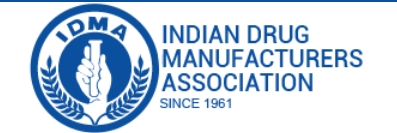IDMA intensifies capacity-building efforts following deadline extension for Revised Schedule M compliance: Daara Patel, Secretary General of IDMA
January 10, 2025 | Friday | News
More workshops are planned for 2025, targeting key provisions of the Revised Schedule M
“We are committed to supporting the pharmaceutical industry in adopting the Revised Schedule M guidelines,” stated Daara Patel, Secretary General of IDMA. With 18 workshops conducted from 2022 to 2024, the Indian Drug Manufacturers’ Association (IDMA) plans to roll out additional training programmes in partnership with regulatory bodies and state chapters, following the extended deadline for Revised Schedule M compliance until December 31, 2025.
The Indian Drug Manufacturers’ Association (IDMA) has announced plans to scale up its capacity-building initiatives to help pharmaceutical manufacturers align with the Revised Schedule M guidelines, following the Union Ministry of Health’s recent extension of the compliance deadline.
Initially set for December 2023, the revised guidelines now have a final implementation deadline of December 31, 2025. The extension provides much-needed relief to Micro, Small, and Medium Enterprises (MSMEs) in the pharmaceutical sector, enabling them to upgrade facilities and meet global quality standards. Manufacturers with turnovers below Rs. 250 crores can apply for additional extensions, using a newly issued application format detailing their upgrade plans.
Patel emphasised the association's dedication to the industry. “We are committed to supporting the pharmaceutical industry in adopting the Revised Schedule M guidelines,” Patel stated.
“Our collaborative efforts have already resulted in 18 workshops and training programmes between 2022 and 2024. With the continued partnership of the Central Drugs Standard Control Organization (CDSCO), the All India Pharmaceutical Associations Consortium (AIPAC), and Food and Drug Administration of various states pan-India and state chapters of IDMA, we aim to conduct more workshops in the coming months,” he added.
IDMA's efforts have already seen significant progress. Eleven workshops were conducted in 2022, followed by five in 2023, and two more in 2024, covering diverse aspects of compliance. The workshops, conducted in collaboration with the Central Drugs Standard Control Organization (CDSCO), the All India Pharmaceutical Associations Consortium (AIPAC), and state FDAs, focused on bridging knowledge gaps and ensuring adherence to Good Manufacturing Practices (GMP).
More workshops are planned for 2025, targeting key provisions of the Revised Schedule M, which include modernised facilities with emphasis on cleanliness and contamination prevention, validated equipment with maintenance of stringent standards for production equipment, environmental controls with adherence to global standards for air, water, and waste management, Pharmaceutical Quality Systems (PQS) systems to ensure consistent quality and Product Quality Reviews (PQR) to regularly evaluate for ongoing compliance.
Patel further informed that while the revised guidelines aim to elevate the quality of Indian pharmaceutical products, MSMEs face significant challenges, particularly in financing and technical expertise required for upgrades. The IDMA’s workshops have been instrumental in addressing these challenges, offering insights into global GMP compliance and facilitating knowledge sharing.
“Collaborative efforts between IDMA, regulators, and state bodies will remain vital in bridging gaps and supporting MSMEs. These initiatives not only bolster domestic quality but also restore global confidence in Indian pharmaceutical products. With the deadline extension and IDMA’s proactive approach, the industry is poised to achieve new heights in regulatory compliance, paving the way for a more robust pharmaceutical manufacturing ecosystem in India,” Patel concluded.









